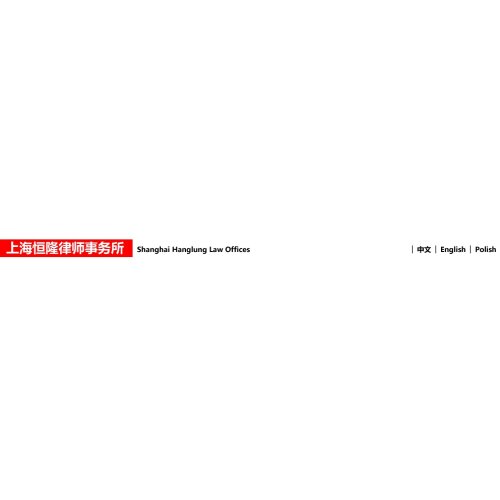Best Ethics and Professional Responsibility Lawyers in China
Share your needs with us, get contacted by law firms.
Free. Takes 2 min.
Or refine your search by selecting a city:
List of the best lawyers in China
About Ethics and Professional Responsibility Law in China
Ethics and Professional Responsibility in China encompass a legal framework that ensures professionals adhere to certain ethical standards and norms in their respective fields. This legal area is crucial for maintaining public trust and the integrity of various professions, such as law, medicine, business, and academia. In China, this field is governed by a combination of state laws, industry-specific regulations, and professional codes of conduct. These guidelines aim to prevent misconduct and address issues that may arise from unethical professional behavior.
Why You May Need a Lawyer
Individuals and businesses may seek legal assistance in Ethics and Professional Responsibility for various reasons. Common situations include:
- Allegations of professional misconduct or violation of ethical standards.
- Advisory needs when setting up corporate compliance protocols to avoid ethical pitfalls.
- Handling disputes related to breaches of professional codes, especially in legal and medical fields.
- Defense in disciplinary proceedings initiated by professional associations or regulatory bodies.
- Guidance in drafting, reviewing, or enforcing ethical policies within organizations.
Local Laws Overview
Chinese laws relevant to Ethics and Professional Responsibility are multi-faceted and draw from a variety of legal and regulatory frameworks. Key aspects include:
- Professional Codes of Conduct: Most professions have established codes that set baseline ethical standards. Violations can lead to sanctions, penalties, or loss of license.
- Regulatory Bodies: Organizations like the All China Lawyers Association oversee adherence to ethics among lawyers, imposing penalties for non-compliance.
- Corporate Governance Regulations: These rules require businesses to implement ethical practices in management and operations, often in alignment with international standards.
- Anti-Corruption Laws: Ethical conduct is closely tied to anti-corruption measures, which are rigorously enforced under laws such as the Anti-Unfair Competition Law.
- Labor Law and Employment Contracts: Laws stipulate ethical treatment of employees, ensuring fair labor practices and ethical employment standards.
Frequently Asked Questions
1. What is the role of a professional code of conduct?
A professional code of conduct outlines the ethical expectations for individuals in a specific profession, focusing on integrity, transparency, and accountability.
2. Can a professional be sanctioned for ethical breaches?
Yes, professionals can face sanctions ranging from fines to suspension or revocation of licenses if they breach their professional codes of conduct.
3. How are ethical disputes typically resolved?
Ethical disputes can be resolved through disciplinary proceedings within professional associations, legal action, or alternative dispute resolution methods.
4. Does China have laws against workplace discrimination?
Yes, the Labor Law and Employment Promotion Law prohibit discrimination based on factors like gender, ethnicity, or disability, ensuring ethical workplace practices.
5. What kind of lawyer deals with ethical issues?
A lawyer specializing in professional responsibility and ethics, possibly with experience in corporate compliance or employment law, handles these issues.
6. Are there protections for whistleblowers in China?
There are some legal provisions protecting whistleblowers, particularly around reporting corruption and fraud, ensuring their safety from retaliation.
7. How can a business establish ethical standards?
Businesses can establish ethical standards by developing a code of ethics, providing employee training, and ensuring compliance with relevant laws and regulations.
8. What is the penalty for violating anti-corruption laws?
Penalties for violating anti-corruption laws can be severe, including heavy fines and imprisonment, depending on the nature and extent of the violation.
9. How can I report unethical behavior in a professional setting?
Unethical behavior can be reported to the relevant professional association, regulatory body, or, in some cases, law enforcement agencies.
10. Are ethical standards mandatory for foreign businesses in China?
Yes, foreign businesses operating in China are required to adhere to Chinese legal standards and ethical practices to ensure compliance and avoid legal repercussions.
Additional Resources
For those seeking more information on Ethics and Professional Responsibility, the following resources may be helpful:
- All China Lawyers Association
- China Employment Promotion Association
- State Administration for Market Regulation
- Ministry of Justice of the People's Republic of China
- Guidebooks on Chinese Corporate Governance
Next Steps
If you need legal assistance in Ethics and Professional Responsibility, consider the following steps:
- Identify the specific nature of your issue concerning ethics and professional responsibility.
- Research and contact a qualified legal professional or law firm specializing in the relevant area of ethical law in China.
- Prepare relevant documentation and a clear account of the situation you are facing.
- Consult with the legal expert to discuss your case and potential legal strategies.
- Follow the legal advice provided and take necessary action based on counsel from your lawyer.
Lawzana helps you find the best lawyers and law firms in China through a curated and pre-screened list of qualified legal professionals. Our platform offers rankings and detailed profiles of attorneys and law firms, allowing you to compare based on practice areas, including Ethics and Professional Responsibility, experience, and client feedback.
Each profile includes a description of the firm's areas of practice, client reviews, team members and partners, year of establishment, spoken languages, office locations, contact information, social media presence, and any published articles or resources. Most firms on our platform speak English and are experienced in both local and international legal matters.
Get a quote from top-rated law firms in China — quickly, securely, and without unnecessary hassle.
Disclaimer:
The information provided on this page is for general informational purposes only and does not constitute legal advice. While we strive to ensure the accuracy and relevance of the content, legal information may change over time, and interpretations of the law can vary. You should always consult with a qualified legal professional for advice specific to your situation.
We disclaim all liability for actions taken or not taken based on the content of this page. If you believe any information is incorrect or outdated, please contact us, and we will review and update it where appropriate.
Browse ethics and professional responsibility law firms by city in China
Refine your search by selecting a city.













